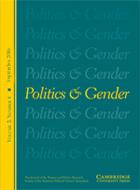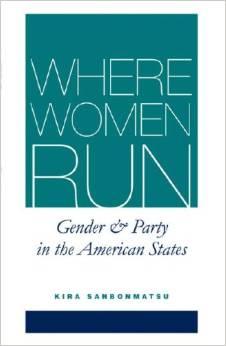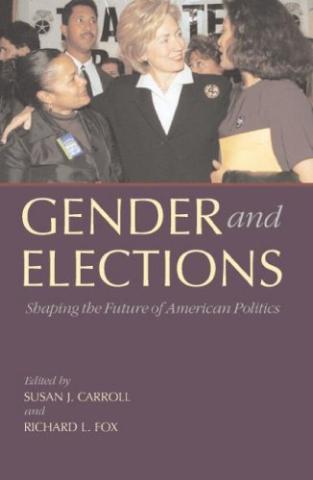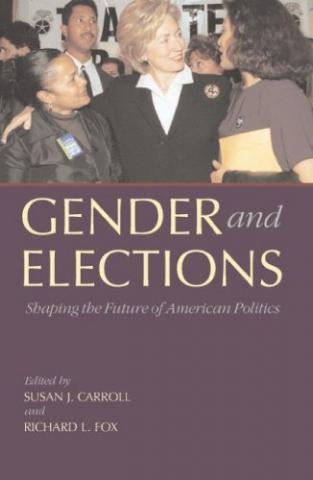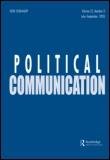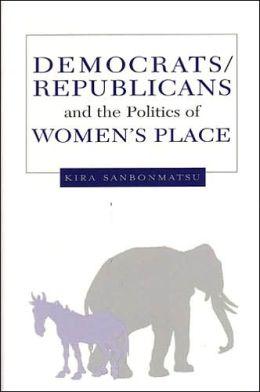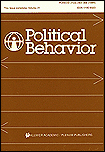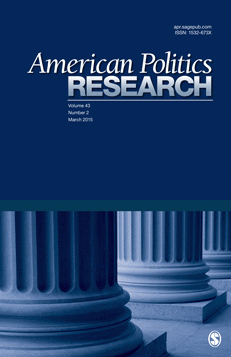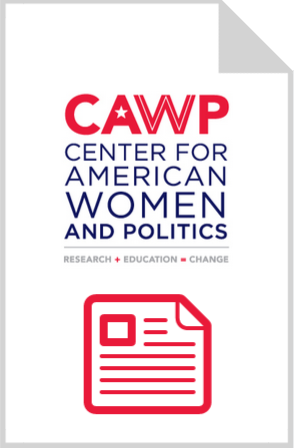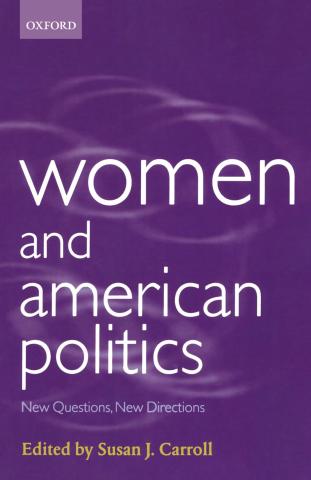Do Parties Know that ‘Women Win’? Party Leader Beliefs about Women’s Electoral Chances
by Kira Sanbonmatsu
Politics & Gender 2006 (December)ArticleResearchCAWP ScholarPolitical PartiesCandidates and CampaignsWhere Women Run: Gender and Party in the American States
by Kira Sanbonmatsu
University of Michigan Press, 2006, 264 pagesBookResearchCAWP ScholarPolitical PartiesCandidates and CampaignsCandidate RecruitmentState Elections: Where Do Women Run? Where Do Women Win?
by Kira Sanbonmatsu
Chapter in Gender and Elections: Shaping the Future of American Politics, 1st Edition, Eds. Susan J. Carroll, CAWP, Rutgers University and Richard L. Fox, Union College, New York
Cambridge University Press, 2005 First Edition, 240 pagesBook ChapterResearchCAWP ScholarCandidates and CampaignsGender and Elections: Shaping the Future of American Politics, 1st Edition
Eds. Susan J. Carroll, CAWP, Rutgers University and Richard L. Fox, Union College, New York
Cambridge University Press, 2005 First Edition, 240 pagesBookResearchCAWP ScholarPolitical PartiesCandidates and CampaignsGender and Race/EthnicityWomen Voters and the Gender GapState LegislatureStatewide ExecutiveCongressFederal Executive‘She Brought Only a Skirt:’ Gender Bias in Newspaper Coverage of Elizabeth Dole’s Campaign for the Republican Nomination
by Caroline Heldman , Susan J. Carroll & Stephanie Olson
Political Communication 22:3 (2005)ArticleResearchCAWP ScholarCandidates and CampaignsFederal ExecutiveDemocrats, Republicans, and the Politics of Women’s Place
by Kira Sanbonmatsu
University of Michigan Press, 2004, 328 pagesBookResearchCAWP ScholarPolitical PartiesCandidates and CampaignsGender-Related Political Knowledge and the Descriptive Representation of Women
by Kira Sanbonmatsu
Political Behavior, 2003 (December)ArticleResearchCAWP ScholarCivic and Political ActivismCandidates and CampaignsCongress"Political Knowledge and Gender Stereotypes"
by Kira Sanbonmatsu
American Politics Research, 2003 (November)ArticleResearchCAWP ScholarCandidates and CampaignsWomen Voters and the Gender GapCandidate Recruitment and Women's Election to the State Legislatures
by Kira Sanbonmatsu
Center for American Women and Politics, Eagleton Institute of Politics, Rutgers, The State University of New Jersey, 2003, 47 pagesReportResearchCAWP ScholarPolitical PartiesCandidates and CampaignsCandidate RecruitmentWomen and American Politics: New Questions, New Directions
Edited by Susan J. Carroll
Oxford University Press, 2003, 262 pagesBookResearchCAWP ScholarPolitical PartiesCivic and Political ActivismCandidates and CampaignsCandidate RecruitmentGender and Race/EthnicityWomen Voters and the Gender Gap


